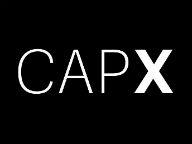Faculty News
—
Dean Peter Henry emphasizes the importance of a pro-immigration agenda in closing the United States' skills gap and driving economic growth
—

Excerpt from CNBC -- "There was a bipartisan report in 2012 on economic recovery and jobs and competitiveness in the United States which told us that, by 2020, we were going to be 1.5 million skilled, college educated, workers short in the United States... So that suggests that you've got to do two things. One, you've got to grow those workers. You've got to find a way to create more educational ability within the country. But while you're trying to catch up on that front, you've also got to encourage immigration of skilled workers. And so, if you really want an agenda that's going to drive shared prosperity, a pro-immigration agenda is a pro-growth agenda."
Faculty News
—

Excerpt from CNBC -- "There was a bipartisan report in 2012 on economic recovery and jobs and competitiveness in the United States which told us that, by 2020, we were going to be 1.5 million skilled, college educated, workers short in the United States... So that suggests that you've got to do two things. One, you've got to grow those workers. You've got to find a way to create more educational ability within the country. But while you're trying to catch up on that front, you've also got to encourage immigration of skilled workers. And so, if you really want an agenda that's going to drive shared prosperity, a pro-immigration agenda is a pro-growth agenda."
















